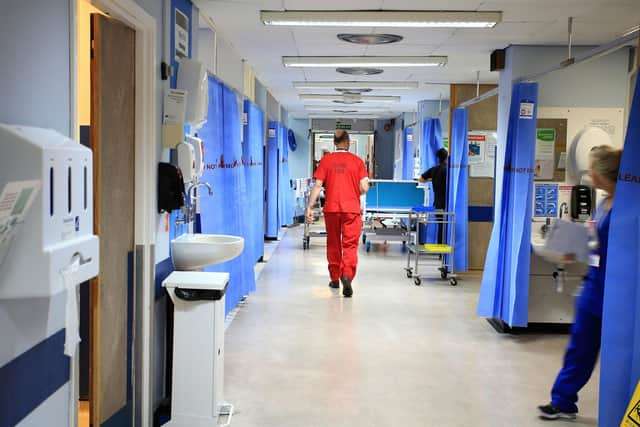NHS's founding principle, of being free at the point of need, must be protected or health inequalities will get worse – Dr Andrew Buist
The source of the problem involves 20 years or more of poor strategic decisions. Sadly, even now I’m not convinced a clear plan exists for how we make our NHS fit for the future.
Without a policy change, we will continue to drift from crisis to crisis. And while the pandemic did not help, it was not the cause of the situation, rather it merely brought the situation to a head and exposed the inherent weaknesses in the current policy direction.
Advertisement
Hide AdAdvertisement
Hide AdThe BMA is calling for a national conversation with the public on the future of our health and social care system. Some might say it is an easy thing to call for, harder to deliver on. Undoubtedly, it is an uncomfortable conversation for politicians, particularly those in power to oversee, with the inherent need for us all to face facts and be realistic about what we need and balance that with what we can afford, or what we are willing to pay for through general taxation.
We are clear care needs to stay free at the point of need – but given how many people are now going private to avoid long waits, how do we protect that founding principle, while delivering what we need from our modern-day NHS? We have significantly underinvested in community care. What we need is to bring resources ‘upstream’, closer to where patients live.
There is good evidence with more district nurses, health visitors and GPs, we can prevent more activity ending up in hospital and, with better support packages for paid carers, we can address the delayed discharge problem that is holding up admission from A&E.
What I believe most patients want more than anything are clinicians who have the time to care, to listen and explain, and to show compassion and provide continuity. We are so often failing on many of these through no fault of the doctors themselves, who are simply faced with having to apologise for the many failings of the system as a whole.
The current policy direction results in ends that do not meet, patients get frustrated at their inability to get basic care and the system often resorts to squeezing the workforce for efficiencies, reducing time to care and other unintended consequences that further exacerbate the crisis. The workforce is the largest single cost, but also the single most important resource.


This pressure is adversely impacting on staff retention and, combined with some disastrous pension policies from the UK Treasury, is compounding the service provision difficulties. If we carry on without policy changes, then the health inequalities in Scotland will further widen as those with the means to do so will increasingly go private for parts of their care.
For general practice without change, I anticipate the rise of large doctor-light, salaried practices in urban deprived areas, while more affluent areas continue with the traditional model, further widening inequalities. Whatever we do, it will take some years to turn this NHS ship around, but it must change if we wish to avoid perpetual crises and aspire to maintain an equitable, universal NHS that meets the needs of the majority.
Dr Andrew Buist is chair of BMA Scotland’s GP committee
Comments
Want to join the conversation? Please or to comment on this article.